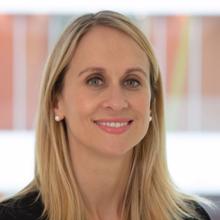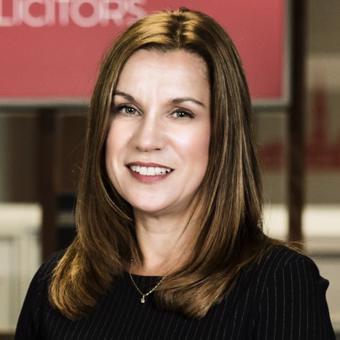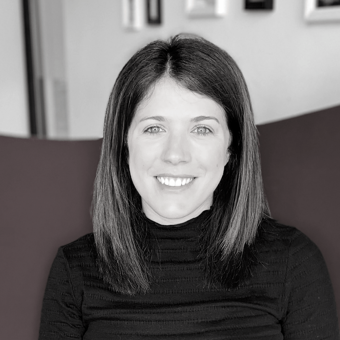Kate Granville Smith’s career in pensions law spans a period of rapid and sometimes dramatic change for her specialist field. She tells The Brief about a high-stakes practice area with a collaborative ethos.
Kate Granville Smith is a director in the pensions practice at independent UK law firm Burges Salmon. With eight partners and approximately 40 lawyers, it is one of the largest pension teams in the UK.
The firm as a whole employs more than 350 lawyers, and over 1,000 people in total. Headquartered in Bristol, it also has offices in London, Edinburgh, Dublin, and Cardiff, and has international reach via its Preferred Law Firm network of like-minded firms.
Within the pensions team, Granville Smith focuses in particular on ESG (environmental, social and governance) matters, having been recognised as a “distinguished adviser” on ESG and pensions by Financier Worldwide. These issues have been a major focus for pension schemes’ investment strategies for several years and are now increasingly informing all aspects of the ways in which schemes operate, as they are permeating business life in general.
In fact, according to Granville Smith, Burges Salmon itself is a leader in the field of sustainability and ESG, being one of the first law firms to set up an environmental law practice some 25 years ago and having ESG expertise across the practice areas. “The firm has a strong emphasis on sustainability and making sure that we’re serving not just the people who work here but also the wider community and wider world,” she explains.
Nurturing environment
Granville Smith initially joined Burges Salmon as a trainee around the turn of the millennium, having completed her law degree – a subject she says she chose because “it fitted my skill set” and offered many different career paths, depending on practice area.
She applied for a training contract at Burges Salmon in her hometown of Bristol. It stood out among the various firms she looked, offering excellent training and career opportunities.
Even before I joined as a trainee solicitor, I was invited to the firm’s social events and received their newsletters. They are very nurturing, and care about the individuals.
One of the seats during her training contract was in the firm’s already well-established pensions department. At first, she says, she didn’t know what to make of this – “it’s not a subject that you study at university” – but something clicked, and in 2001 she qualified into pensions.
Although she had no previous direct knowledge of pensions law, her favourite subject at university had been trust law, which underpins the entire pensions system, a subject in which she achieved the highest mark in her year.
Turbulent times for pensions
The period in which Granville Smith has been practising has, arguably, been the most turbulent in the history of the UK pensions sector. The personal pensions mis-selling scandal of a decade earlier was still casting a long shadow when she began practising, stakeholder pensions were launched in 2001, and bigger changes were yet to come with the 2006 “A-day” reforms which controlled the amount people could save into, and accrue in, UK pension schemes, and which have been tinkered with by virtually every chancellor of the exchequer ever since.
The adoption of new, inflexible accounting standards, combined with rules limiting the surpluses that could be built up by company pension schemes during years of good investment performance, were also, at the time Granville Smith embarked on her career, seeing increasing numbers of companies choosing to close their “defined benefit” schemes, in which the employee’s eventual pension is based on their salary.
These would be replaced by “defined contribution” schemes in which the eventual pension is dependent on the value of the investment pot built up by the member over the course of their career, and in which the risk of poor investment performance is borne by the employee rather than the employer.
This was also a period during which a number of pension schemes became insolvent and inherent fragilities in the system became apparent, in the wake of events such as the Maxwell scandal.
“I started at a really interesting time to be in pensions,” she says. “It was before the Pensions Protection Fund was introduced, which now provides a degree of protection to members of defined benefit pension schemes that become insolvent, and a lot of the work we were doing was with schemes that were in financial distress.
Members were at risk of losing everything, so it really did feel like an area in which you could make a difference and help people. I found it totally fascinating.
Collaborative ethos
Most of Granville Smith’s work involves advising pension fund trustees, although the wider team at Burges Salmon also advises employers who sponsor pension schemes, and pension funds run by life insurance companies. Pension schemes advised by the team have values ranging from the tens of millions to several billion pounds.
Many of the matters handled by the pensions team are high-stakes but, she says, the culture when working opposite other firms is less confrontational than in some other areas of law.
“It’s really collaborative,” she says. “You work with actuaries, consultants, covenant advisers, and, even when you’re on the opposite side to another set of lawyers on a deal, it’s generally a nice, collaborative environment.
People want to get to the same results. That’s not to say we can’t be robust when we need to be, but generally it’s very much a culture of sharing information.
Time out
Burges Salmon is the only law firm for which Granville Smith has worked. She did, however, leave between 2008 and 2017 to move abroad with her family and work in-house for a large property development business in Dubai.
Although she says she enjoyed her time there, work and family commitments led them to return to the UK, and she was offered the chance to return to the Burges Salmon pensions team.
ESG specialism
In parallel with the various regulatory changes and economic challenges faced by pensions schemes over the last couple of decades, a major cultural shift has also taken root, which is now one of the main focuses of Granville Smith’s practice.
In 2001 some in the pensions sector had a sceptical view of “ethical” or “sustainable” investment – with many expressing open hostility to something they saw as incompatible with their duty to maximise investment returns on behalf of scheme members.
Fast forward to 2023 and, while there remain some dissenting voices in the financial sector, ESG matters have become so mainstream that a major risk for many companies is being seen as not sustainable enough or, almost worse still, being accused of “greenwashing” by talking the ESG talk without being quite so committed to walking the walk.
As the lead on ESG issues in the Burges Salmon pensions team, Granville Smith says these are now issues that cut to the core of the way pension schemes operate, and trustees’ duties.
She explains, “ESG comes into play when trustees are exercising their duties in relation to investing assets, and also to the employer covenant, which governs the employer’s legal obligation and financial ability to support the scheme. There is a really strong focus on the employer covenant now.
“Trustees have to consider their duties under trust law and under legislation, including the scheme’s statement of investment principles and implementation statement. Some of the biggest schemes are having to do climate reporting now, so there is a lot of legislation, a lot of best practice.
“It is something that the Pensions Regulator is really strongly focusing on now, and some of its latest blogs have emphasised that trustees need to have training on ESG and be conversant with it, not just see it as a tick-box exercise – they need to be able to question their advisers about it properly.
ESG isn’t just a hot topic at the moment. It is going to be an ongoing theme, not just for pension schemes but for all corporates and governments.
To help clients navigate these issues, Granville Smith led the development of a Pension Schemes ESG tool which launched last year, and which was commended at The Lawyer Awards. This is an interactive guide that provides direction on how trustees and employers should meet their ESG requirements and helps users identify gaps in their knowledge.
Embracing detail and change
Pensions is an area that has changed radically in recent decades and will probably continue to do so. So, given that the limited number of firms with pension departments mean it is a specialism that prospective trainees would need actively to seek out, what makes a good pension lawyer?
“We all have our different skills, and everyone brings something to the table,” says Granville Smith. “But, in terms of what makes a good pensions lawyer, I think perhaps somebody who likes detail, because there is a lot of legislation, and there are a lot of new developments, so it helps to be someone who likes the challenge of technical law and keeping up-to-date with a changing environment.
“They would also need to like working with other people – not just other lawyers, but trustee boards and other advisers. So, as well as being on top of the detail, they need to be good at cutting through it and explaining complex things clearly.
Pensions is actually an exciting area with all sorts of things going on, and regular changes in legislation and regulation, so if you are going to thrive in this area you need to be the sort of person who will embrace that.
Visit
Connect with Kate Granville Smith via LinkedIn











